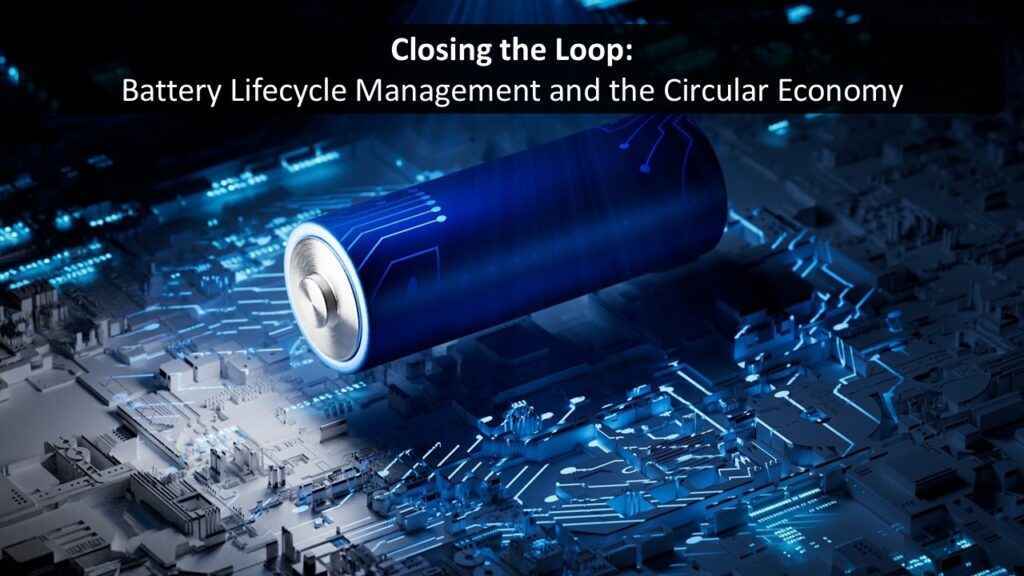EVs are not just a trend; they mark a significant shift toward eco-friendly transportation. Their benefits are evident: zero tailpipe emissions, efficient and quiet driving systems, and the ability to recharge without adding to air pollution. Central to this innovation are the batteries that make it all possible.

However, the long-term sustainability of EVs depends on effective battery lifecycle management. Three critical factors must be addressed:
1. Limited Battery Lifespan: Batteries eventually degrade, necessitating careful management and repurposing.
2. Reliance on Virgin Material Mining: Extracting raw materials for batteries can raise environmental and ethical concerns.
3. Potential Environmental Hazards: Improper disposal of batteries poses significant risks to the environment.
To tackle these challenges and further the circular economy in the EV sector, several innovative solutions are being proposed:
1. Battery Aadhaar/Passport System: By leveraging blockchain technology, this system would create a secure, transparent record for each battery, tracking its journey from production to end-of-life. This digital passport ensures adherence to safety and environmental standards while providing real-time monitoring and verification.
2. Asset Utilization Certificates (AUC): These certificates would optimize the valuation of batteries for second-life applications, recycling, and resale, ensuring that each battery is utilized to its fullest potential.
3. Battery-in-the-Cloud and True Digital Twin Solutions: These technologies provide a comprehensive end-to-end view of the battery lifecycle, enhancing decision-making and promoting greater resource efficiency.
Monitoring batteries closely is crucial—not only for assessing their potential second life but also for ensuring fair EV sales, efficient recycling, and innovative repurposing. As EV sales in India surge by 40% in FY24, establishing a robust recycling ecosystem is increasingly critical. Such an ecosystem will support rapid EV adoption, reduce reliance on foreign battery materials, and strengthen supply chain security. Indigenous cell manufacturing efforts are poised to play a pivotal role in ensuring a sustainable future for EVs in India.
By embracing these technological advancements, the EV sector is paving the way for a sustainable, resilient, and efficient circular economy. Ensuring that each battery is used to its fullest potential is not just about closing the loop—it’s about opening doors to a greener, more sustainable future.
